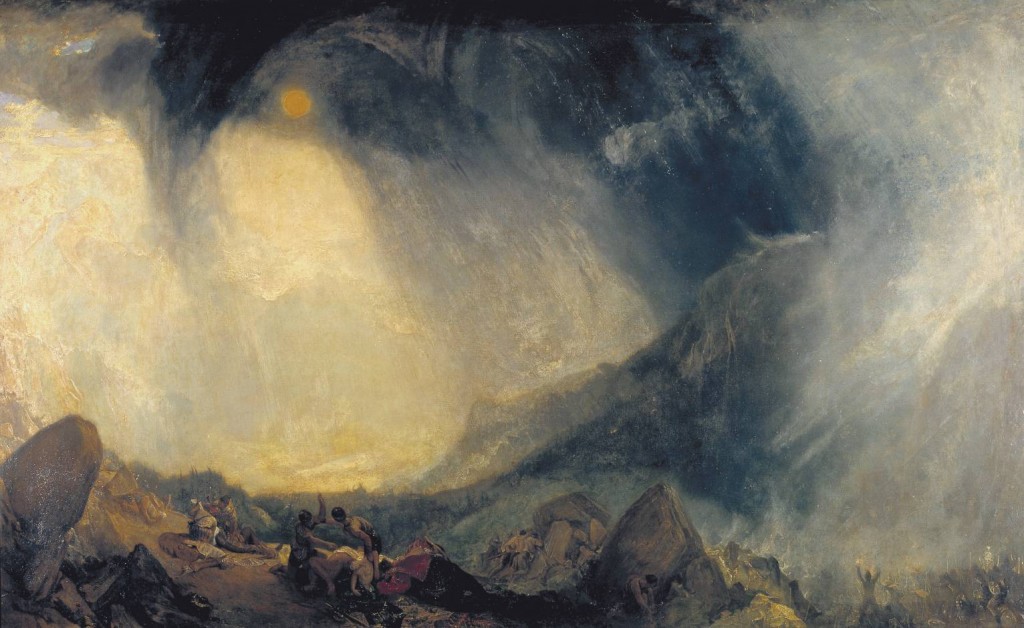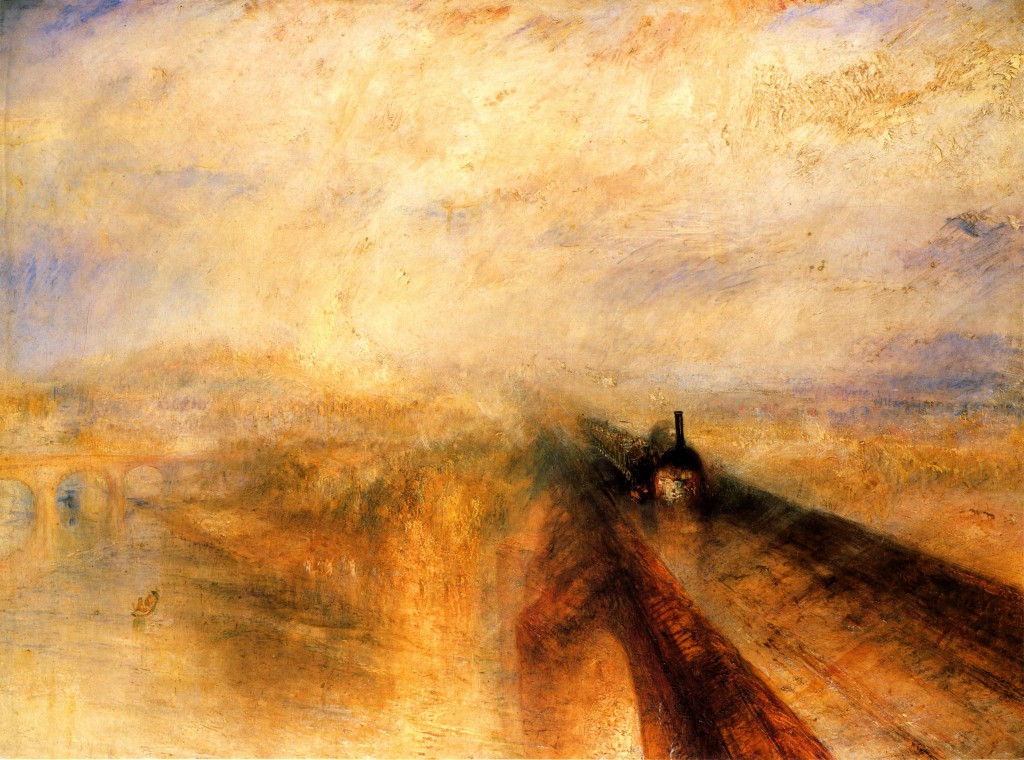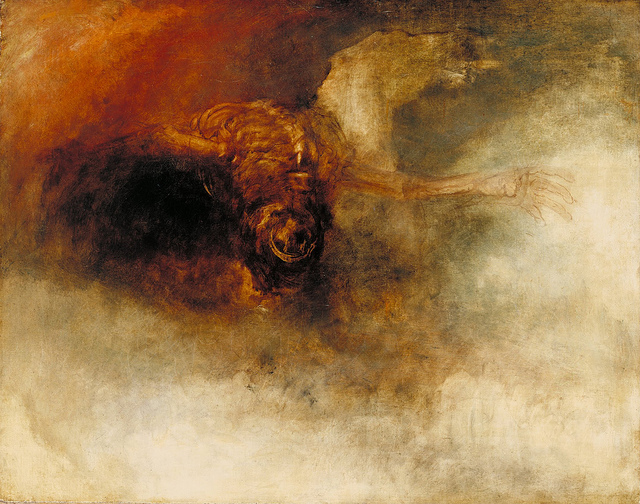I first became aware of the power of art when I was in my early twenties. Prior to that, I of course had seen art before, but I had never thought much about it. But when I started taking art and music history classes, I began to realize that a sculpture wasn't just an inanimate 3D object, a building wasn't just a form that provided shelter, a musical piece wasn't just a bunch of notes strung together, and a painting wasn't just a canvas with paint on it. The idea that an artwork could contain an entire universe of thought and meaning was a revelation to me, and I dove with great enthusiasm into exploring as many different types and eras of art as I could in order to learn more. It's been interesting to see which artists have risen to the top of my own personal list of favorites over the years. One of the painters who rocketed to the top and has stayed there is 19th Century English landscape painter and printmaker J. M. W. Turner. Looking at his seascapes, in particular, is like listening to a Beethoven symphony.
No one else used paint the way he did at that time. Very few painters saw and conveyed light in the way he did. His paintings exude energy and vibrancy- they are almost alive in their shimmering atmospheric presence. Many of his paintings contain historical references, both ancient and contemporary to his time, but in ways that are visually atypical for a 19th Century painter.
I have been thinking a lot about his work recently because a film, "Mr. Turner", has come out that has Turner as its main character and which has been recommended to me by many friends. (Note to self: Put that on my list of films to see when it comes to town...)
The New York Times published a review of the film by critic A. O. Scott, the last three sentences of which perfectly sum up one of the reasons that I make art:
"By the end [of the film], we may not be able to summarize Turner's life, explain his paintings or pass a midterm on British history. But we may find that our knowledge of all those things has deepened, and the compass by which we measure our own experience has grown wider. Only art can do that, and it may be all that art can do."
And isn't that amazing??!! That an art object can lead to that kind of self-knowledge??!! It's that kind of knowledge that not only enriches us, but that can lead us to act, and therefore live more meaningful lives. Any artist whose work can do that for others is worth knowing about. And because your work has done that for me, I thank you, Mr. Turner.


